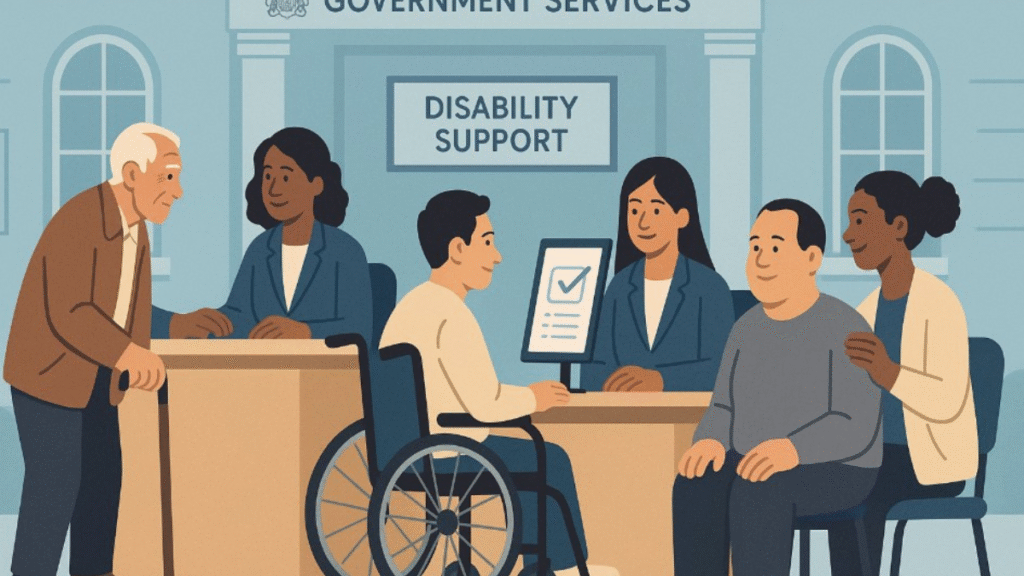Big changes are on the DWP horizon for the UK’s welfare benefits system, and they are expected to significantly impact millions of families across the country. If you receive Universal Credit (UC) or Personal Independence Payment (PIP) or might need to apply for these benefits in the future, it is essential to understand what is coming and how it could affect your financial situation.
Beginning in 2026, the UK government plans to implement major reforms that aim to make the welfare system more “sustainable” and focused on helping people move into work. While that might sound like a positive direction, for many low-income households and individuals living with disabilities or long-term health conditions, these changes could result in stricter eligibility rules and a noticeable reduction in financial support.
Let us break down the major reforms, explain what they mean in real terms, and discuss how you can prepare.
What Are the Planned Changes?
Universal Credit Health Element
Currently, people who are assessed as having Limited Capability for Work and Work-Related Activity (LCWRA) receive an additional support payment of around £97 per week. This payment is meant to help cover the extra costs that come with living with a serious or long-term health condition.
However, starting in April 2026, new claimants who are placed in this group will only receive £50 per week. That is a reduction of nearly half. Even more concerning is that this new amount is set to remain frozen at £50 for at least four years, meaning it will not rise with inflation. So, while your weekly payment stays the same, the actual cost of living will keep increasing, stretching your budget even thinner over time.
If you are already receiving the current LCWRA payment before the change takes effect, you will continue to receive the full £97 per week. However, that amount will also be frozen, and the same inflation issue applies—your money will not go as far in the years to come.
Standard Universal Credit Allowance

To balance things out a bit, the government is planning to increase the standard Universal Credit allowance gradually. It is expected to rise from around £92 per week in 2025/26 to about £106 by 2029/30. While that might sound helpful, it does not quite make up for the £47 per week cut to the health element. Many households will still experience a net loss in their total support.
Think of it this way: if you lose £47 in one area and gain £14 over four years in another, you are still worse off—especially when everything from rent to food prices is going up.
Personal Independence Payment (PIP) Eligibility
Personal Independence Payment is also undergoing a significant change. As of now, people qualify for PIP based on a points system. You earn points across different daily activities, like preparing food, dressing, bathing, managing medication, or communicating. These points add up and help determine your level of need and how much support you get.
From November 2026, the rules will become much stricter. To qualify, you will need to score at least four points in just one of the listed daily living activities. This may sound simple, but in practice, it will make it more difficult for many people with fluctuating or less visible conditions to meet the threshold.
For instance, someone with a combination of anxiety, mild physical impairment, and chronic fatigue might currently qualify by scoring small amounts across different categories. Under the new rules, if none of those challenges alone give you four points in one category, you could lose your eligibility entirely.
It is estimated that around 1.2 million people could lose access to PIP due to this change.
Who Will Be Affected the Most?

These changes are expected to hit several groups hard:
- New Universal Credit Applicants: If you apply after April 2026 and are found to have LCWRA, you will only receive £50 extra per week instead of £97. This is a significant loss in income, especially for people unable to work due to serious illness.
- New PIP Applicants After November 2026: If you are applying for PIP for the first time after this date, you will need to meet the new, stricter criteria.
- People With Fluctuating Conditions: Those who experience variable symptoms—such as people with mental health disorders, fibromyalgia, or long COVID—may find it harder to qualify under the new rules, even if their daily lives are deeply affected.
- Low-Income Families: An estimated 3.2 million households could be impacted overall. For many of them, this may mean losing an average of £1,730 a year, pushing some 250,000 people into relative poverty.
What Can You Do To Prepare?
With these changes approaching, there are some proactive steps you can take to safeguard your financial stability.
1. Review Your Current Benefits
Start by understanding how your current payments are calculated. Know whether you qualify for LCWRA or PIP and on what basis. Reviewing your past benefit decisions can help you see where you stand and what documentation was most helpful.
2. Consider Applying Before the Changes
If you have been considering applying for Universal Credit or PIP, it might be worth starting the process before the new rules take effect. Applying earlier could mean qualifying under the current, more generous system. But make sure your application is complete and supported by solid medical evidence.
3. Keep Your Medical Records Updated
Documentation is key in benefit assessments. Make sure you have recent letters or reports from your GP, specialists, or therapists. These records can help provide a clearer picture of your health challenges and how they affect your day-to-day life.
4. Get Expert Support
Reach out to organisations that specialise in disability rights and benefits advice. Charities like Citizens Advice, Scope, Turn2Us, and Disability Rights UK have advisers who can walk you through the process, help with form-filling, and even support you at appeals.
Final Thoughts
The upcoming changes to Universal Credit and Personal Independence Payment are more than just policy updates. They are going to reshape how financial help is offered to people who need it the most.
Whether you are currently receiving benefits, caring for someone who does, or may need to apply in the future, it is essential to stay informed and act early. A small step now—like gathering paperwork or seeking advice—could make a big difference in the long run.
Though the road ahead may seem uncertain, understanding your rights and options will give you the best chance to protect your income and your well-being.
Keep checking official government websites for updates, and do not hesitate to ask for help from qualified sources. Staying prepared is the smartest way to face these upcoming changes head-on.
FAQs
Q1. What is the DWP Benefits Reform 2026?
A: The Department for Work and Pensions (DWP) is planning a major reform of welfare benefits, especially Universal Credit and Personal Independence Payment (PIP), starting in late 2026. These changes aim to update eligibility rules, payment models, and assessments for disability and low-income support.
Q2. When will these reforms begin?
A: The government plans to start implementation by late 2026, but full rollout could take months or years, depending on how it’s phased.
Q3. Will there be public consultation or support?
A: Yes, the DWP launched a public consultation in 2024, inviting feedback from claimants, charities, and advocacy groups. Support services may also be expanded to help people transition.
Q4. Can I appeal a decision under the new rules?
A: Yes, you’ll still have the right to appeal or request a mandatory reconsideration, just like under the current benefits system.
Q5. Will current PIP and Universal Credit recipients lose their benefits?
A: Not immediately. Most existing claimants will undergo reassessment under new rules. If you still meet the updated eligibility, you may continue receiving benefits, possibly in a new format or at a different amount.

